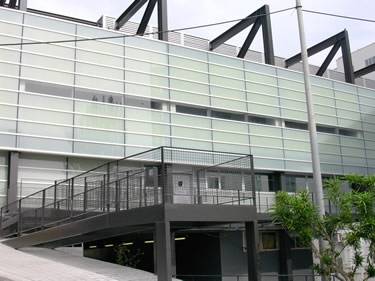Medicine and Health

Personality as a Predictor of Depression Symptoms in Burn Patients
The results of a pioneering study conducted at the Vall d’Hebron University Hospital with 109 adult patients admitted to the Burn Unit suggest that some personality characteristics might be used to identify the most vulnerable patients who may develop more severe depressive symptoms at different points in their recovery, interfering with the process of rehabilitation. This identification of patients with higher risk would allow a more specialised intervention.
References
Giannoni-Pastor, A.; Gomà-i-Freixanet, M.; Valero, S.; Fidel Kinori, S. G.; Tasqué-Cebrián, R.; Arguello, J. M.; Casas, M. Personality as a predictor of depression symptoms in burn patients: A follow-up study. Burns. 2014, vol. 41, num. 1, p. 25-32. doi: 10.1016/j.burns.2014.07.028.
In burn patients, one of the most prevalent psychiatric disorders is depression. Some personality characteristics have been associated with the risk of developing this disorder. In a pioneering study conducted at the University Hospital Vall d’Hebron by a team of Psychiatry, the role of different personalities was analyzed longitudinally, evaluated by the Alternative Model of Five Personality Factors Zuckerman and Kuhlman, in the development of depression symptoms over six months after the burn injury. The participants were a sample of 109 adult patients admitted to the Burn Unit between 2009 and 2011.

Image 1: Burn Unit of the University Hospital Vall d’Hebron.
The results indicate that, regardless of age, sex and body surface burned area, people with high Neuroticism-Anxiety and/or high Aggression-Hostility presented greater depressive symptoms in all follow-ups compared to groups with profiles both low Neuroticism-Anxiety and Aggression-Hostility.
Moreover, personality factors such as Activity and Impulsivity-Sensation Seeking are related to fluctuations in depressive symptoms, with ups and downs in mood that interfere in the process of rehabilitation of patients over six months post-burn.
These findings suggest that personality factors might be used to identify the most vulnerable patients who may develop more severe depressive symptoms at different points in their recovery and also allow an specialized intervention.
Top left figure by iStockphoto/michaeljung.
Anna Giannoni Pastor
Department of Clinical and Health Psychology
2026 Universitat Autònoma de Barcelona
B.11870-2012 ISSN: 2014-6388
